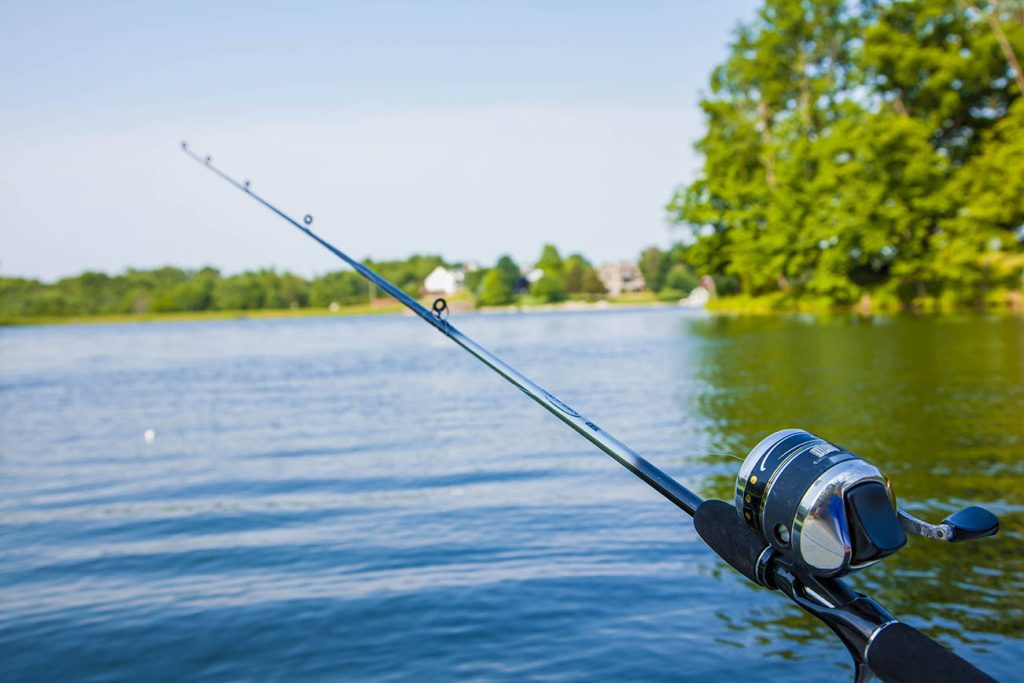The Health Benefits of Recreational Fishing

Recreational fishing is often seen as a peaceful escape from the daily grind, but its benefits extend far beyond simply relaxing by the water. From physical exercise to mental well-being, the advantages of recreational fishing are numerous and backed by scientific research. Whether you’re an avid angler or just considering taking up the hobby, here’s a look at how recreational fishing can positively impact your health.
Physical Exercise
While fishing might seem like a sedentary activity, it actually involves a considerable amount of physical effort. Casting a line, reeling in, and handling equipment all require movement and strength. For those who fish from a boat, balancing and maneuvering on water adds an additional layer of physical challenge.
Key Benefits:
- Cardiovascular Health: Regular physical activity is known to improve cardiovascular health. Fishing often involves walking to various spots, carrying gear, and sometimes even climbing or hiking, all of which contribute to cardiovascular exercise.
- Muscle Strength and Endurance: Reeling in a large fish can be a full-body workout, engaging muscles in your arms, shoulders, and core. Over time, these repetitive actions help build muscle strength and endurance.
Mental Health Improvement
Fishing offers more than just physical exercise; it also provides significant mental health benefits. The tranquil environment of a fishing spot, away from the hustle and bustle of daily life, allows for relaxation and stress reduction.
Key Benefits:
- Stress Relief: The serene surroundings and the focus required to fish can help lower stress levels. The rhythmic nature of casting and waiting is akin to meditation, promoting relaxation and mindfulness.
- Enhanced Mood: Spending time in nature has been shown to improve mood and reduce symptoms of anxiety and depression. The sense of accomplishment from catching a fish, combined with the peaceful environment, can contribute to a more positive outlook on life.

Social Interaction and Connection
Fishing can be a social activity that strengthens relationships and builds new connections. Whether you’re fishing with family, friends, or joining a local fishing club, the social aspects of fishing contribute to overall well-being.
Key Benefits:
- Bonding Time: Fishing provides an opportunity to spend quality time with loved ones. The shared experience of fishing fosters communication and strengthens bonds, which is important for maintaining healthy relationships.
- Community Engagement: Joining a fishing club or participating in community fishing events can help you connect with like-minded individuals, enhancing your social network and providing a sense of community.
Cognitive Benefits
Fishing requires a range of cognitive skills, including problem-solving, strategy, and patience. These mental challenges can have positive effects on cognitive function and overall brain health.
Key Benefits:
- Enhanced Focus: The need to pay attention to your surroundings, monitor the water, and anticipate fish behavior requires concentration. This focus can improve cognitive function and mental acuity.
- Problem-Solving Skills: Deciding which bait to use, adapting to changing weather conditions, and selecting the best fishing techniques involve problem-solving and strategic thinking. These cognitive exercises help keep the mind sharp.
Connection with Nature
Fishing often takes place in natural settings, which can foster a greater appreciation for the environment and provide a sense of tranquility.
Key Benefits:
- Nature Exposure: Spending time in nature has been linked to numerous health benefits, including reduced stress, improved mood, and enhanced immune function. The natural setting of a fishing spot contributes to these positive effects.
- Environmental Awareness: Engaging with nature through fishing can increase awareness of environmental issues and inspire efforts to preserve natural habitats and water quality.
Promotion of Healthy Lifestyles
Engaging in recreational fishing can also encourage other healthy lifestyle choices, such as maintaining an active routine and eating a balanced diet.
Key Benefits:
- Active Routine: Fishing can be part of an active lifestyle, promoting regular outdoor activity and reducing sedentary behaviors. The physical exertion involved can complement other forms of exercise.
- Healthy Eating: The knowledge gained from fishing about local fish species and their nutritional benefits can promote healthier eating habits. Freshly caught fish is a lean protein source that can be incorporated into a balanced diet.
Conclusion
Recreational fishing is more than just a leisurely pastime; it offers a range of health benefits that can improve both physical and mental well-being. From the physical exercise involved to the mental relaxation it provides, fishing can be a valuable addition to a healthy lifestyle. Whether you’re casting your line in a nearby lake or exploring new fishing spots, the benefits of recreational fishing make it a rewarding activity for both body and mind.
So, grab your fishing gear and head to your favorite spot. Not only will you enjoy the thrill of the catch, but you’ll also be investing in your health and well-being. Happy fishing!


